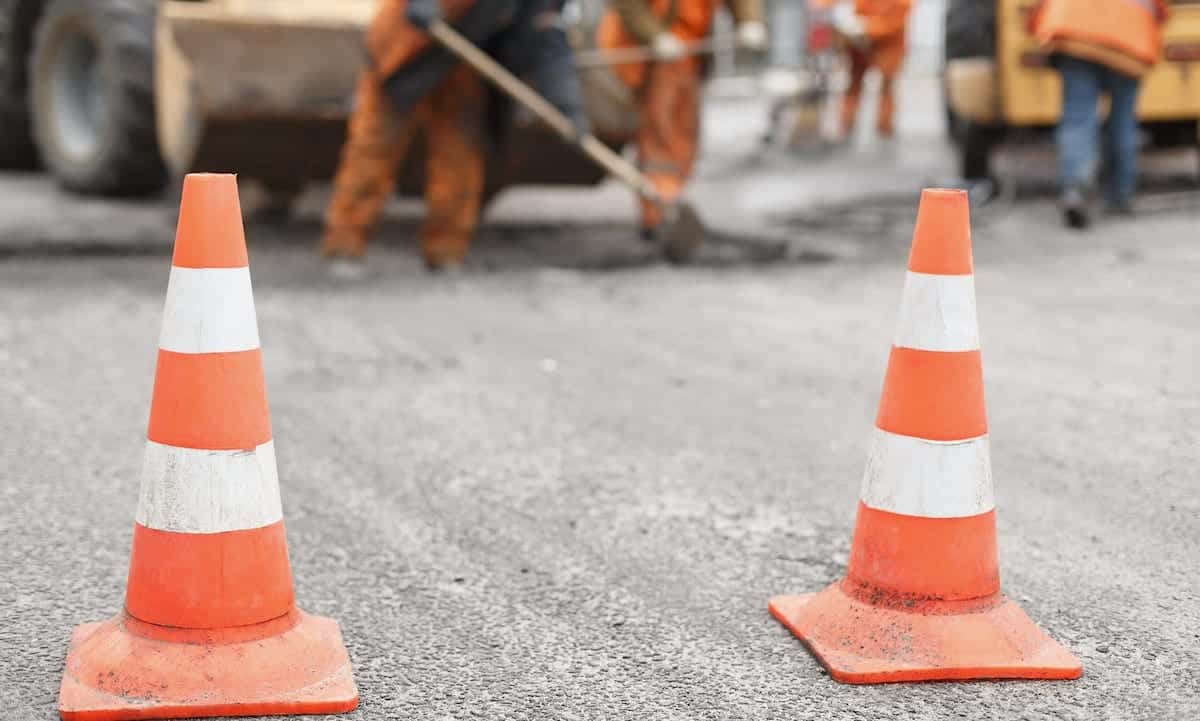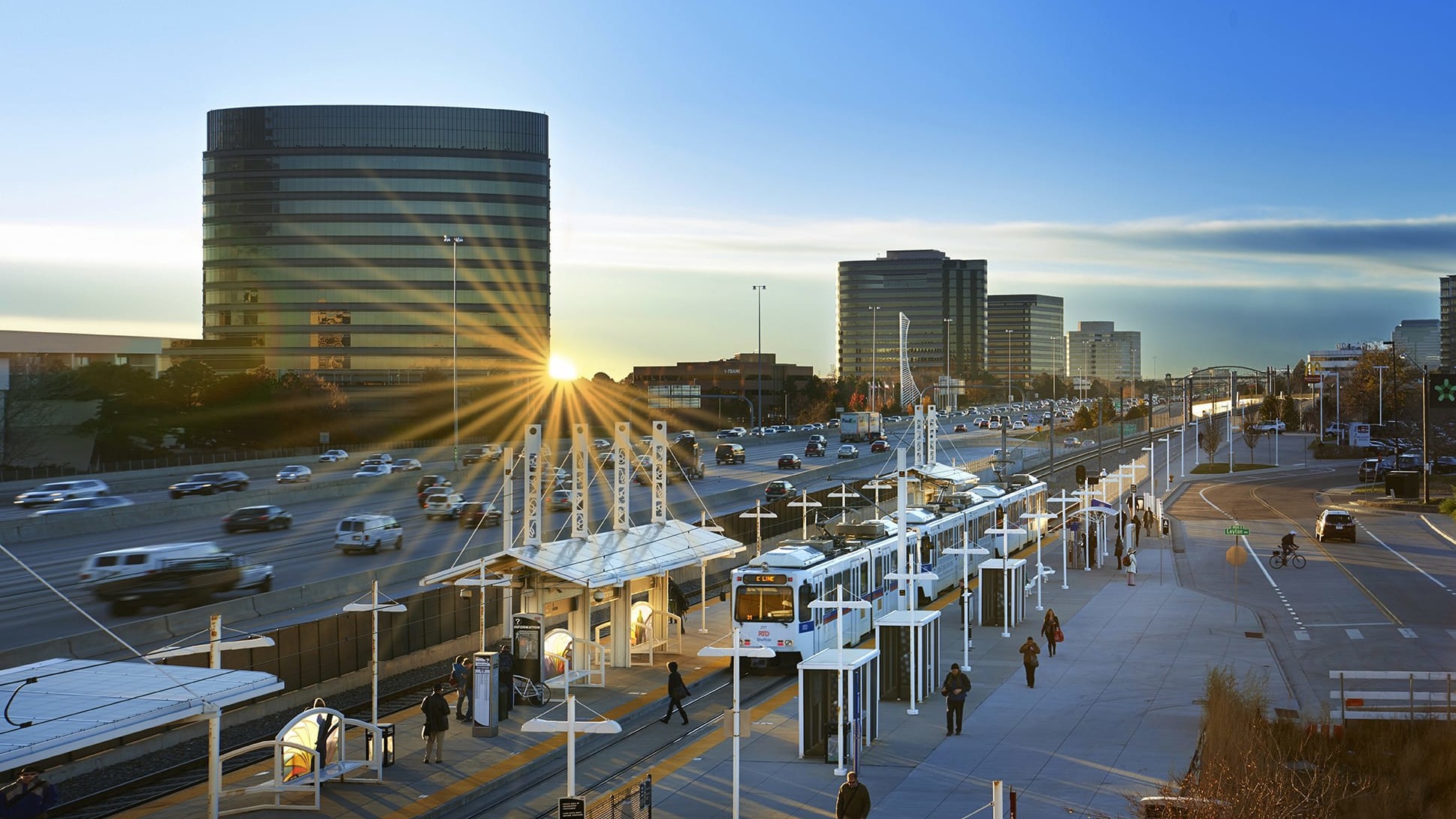Better roads make a better Denver South.
When we think about infrastructure, road repair may seem like a routine task. However, the benefits of fixing roads go far beyond a smoother drive. Improving our roadways strengthens the local economy, enhances daily commutes, and even creates jobs. The counties that make up the Denver South region play a vital role in overseeing and maintaining these essential roads, keeping our communities connected and thriving.
Let’s explore how road maintenance impacts more than just your morning drive.
Economic Growth: How Road Repair Fuels the Local Economy
Roadways are the arteries of economic development. Highways and road systems are one of the most critical components of our state’s and country’s infrastructure, and that infrastructure is also critical to our economy. Well-maintained roads enable the smooth flow of goods and services which allows businesses to succeed. The road repair sector also directly contributes to local employment, supporting the growing job markets in engineering, construction, and maintenance.
According to a report from Brookings, infrastructure jobs — including road repair — account for about 11% of the workforce, with that number being likely to further increase. These jobs are crucial to the region’s economy, offering living wages and opportunities for advancement. And, as we consider how to address skilled worker shortages, jobs in road repair and construction offer a relatively low barrier to entry with higher-than-average living wages and the potential to grow in the coming decades.
Counties in the Denver South region are responsible for maintaining major metro area thoroughfares that link suburban and rural locations to larger urban centers. These roads are vital to transporting goods and workers, supporting the local and regional economy. Without proper maintenance, these roads can fall into disrepair, disrupting everything from business operations to everyday commutes.
TRIP reports that, as of 2024, “48% of Colorado’s major roads are in poor or mediocre condition. Driving on deteriorated roads costs Colorado motorists $3.7 billion a year – $816 per driver – in the form of additional repairs, accelerated vehicle depreciation, and increased fuel consumption and tire wear.”
Investing in road repair doesn’t just fix potholes — it fuels the economic engine that keeps Denver South moving forward.
Related: Transportation’s Vital Role in Connecting People with Experiences
Suggested Reading:
Improving Commutes: Making Travel Easier for Everyone
A well-maintained road network is key to a smooth-functioning society. Anyone who’s driven long enough has likely encountered the frustration of potholes, uneven roads, or traffic delays caused by long-neglected infrastructure. Road repair spending can significantly reduce these headaches, ensuring smoother, faster commutes for all.
Road maintenance also reduces the time spent navigating detours or avoiding damaged routes. When roads are in good condition, workers can reach their jobs on time, students can get to school safely, and everyone from cyclists to motorists can enjoy safer, more efficient travel routes. These benefits extend across various forms of transportation, making life easier for car drivers, bus riders, microtransit users, and even pedestrians.
Related: Getting Around Denver South
Outside of the Denver South region in Colorado, the benefits of investment in road and infrastructure improvement are demonstrated by initiatives like the “Safer Main Streets” program, a collaboration between the Colorado Department of Transportation (CDOT) and the Denver Regional Council of Governments (DRCOG). This program has allocated nearly $59 million to 30 safety-focused projects across the Denver metropolitan area. These efforts include building out sidewalks, enhancing crosswalks, and improving access to transit and bikeways, addressing critical areas that see a high number of traffic accidents. The program was so successful that it quickly became a statewide initiative.
Saving Money: The Financial Impact of Well-Maintained Roads
When roads are in disrepair, the financial costs can quickly pile up — for both drivers and the community. According to AAA, hitting a pothole can cost a driver an average of $300 in repairs, with U.S. drivers collectively spending over $3 billion annually on pothole-related damage. Well-maintained roads reduce this financial burden, saving drivers from costly repairs and helping families keep more money in their pockets.
Counties and their taxpayers bear the financial burden of overseeing and maintaining stretches of road that are more prone to damage from weather and high traffic. When these roads are neglected, the cost to drivers — and the local economy — can be significant. By investing in road repairs now, we avoid the higher costs of extensive damage down the line. Every dollar not spent on car repairs can be reinvested into the local economy, supporting businesses, housing projects, or personal expenses. It’s a win-win for both residents and the region.
Get Involved in Community Repair: Report Potholes and Road Damage
Citizen reporting of potholes or other road issues can lead to quicker repairs and safer commutes. Denver South’s two counties, Arapahoe and Douglas, have dedicated online portals where you can submit road maintenance requests. Visit the official county websites and navigate to their “Report a Problem” or “Public Works” sections. If you prefer to speak directly, most counties have hotlines.
For example, you can call Arapahoe County’s Road and Bridge Division at (720) 874-ROAD to report road hazards. Some local governments have even adopted mobile applications that allow residents to easily report potholes, traffic light issues, or other infrastructure problems. For pothole repairs and maintenance issues on Colorado interstates and highways, please contact the Colorado Department of Transportation.
By reporting issues promptly, you’re contributing to safer roads and better drives through Denver South.
The Role of Counties: Connecting Towns and Managing Regional Roads
Counties play a crucial yet often underappreciated role in maintaining the vital road networks that connect towns, cities, and rural areas. While towns and smaller jurisdictions are responsible for local streets, counties like those in Denver South manage a broader network of regional roadways. These roadways cross multiple jurisdictions, connecting smaller towns with major highways, and providing critical routes for commuters, commercial vehicles, and emergency services.
In the Denver South region, counties such as Arapahoe and Douglas oversee the upkeep of many of these essential roads. County-managed roads are typically longer stretches, often running through rural or semi-urban areas where road conditions can deteriorate more rapidly due to less frequent maintenance and harsher weather conditions. The responsibility extends to more than just road resurfacing; counties must handle snow removal, pothole repairs, and ongoing infrastructure upgrades.
County governments are additionally often responsible for bridges, overpasses, and arterial roads that facilitate both local and interstate travel, playing an indispensable role in regional economic development. They also collaborate with state-level agencies, like the Colorado Department of Transportation, to fund and manage larger infrastructure projects that span multiple counties or affect major corridors used for transporting goods.
The Ripple Effect of Investing in Infrastructure
Investing in road infrastructure isn’t just about making our commutes more comfortable — it’s a long-term investment in the economic vitality and overall well-being of our communities. Every newly paved road, repaired pothole, and smoother commute creates ripple effects that benefit everyone, from small businesses relying on efficient transportation to residents saving on vehicle repair costs. In Denver South, road improvements are more than just construction projects — they’re foundational to growing the region, enhancing connectivity, creating jobs, and empowering the local economy to reach new heights.
Be part of the change. Join our newsletter, and collaborate with us in making Denver South an even better place to live, work, and travel.


